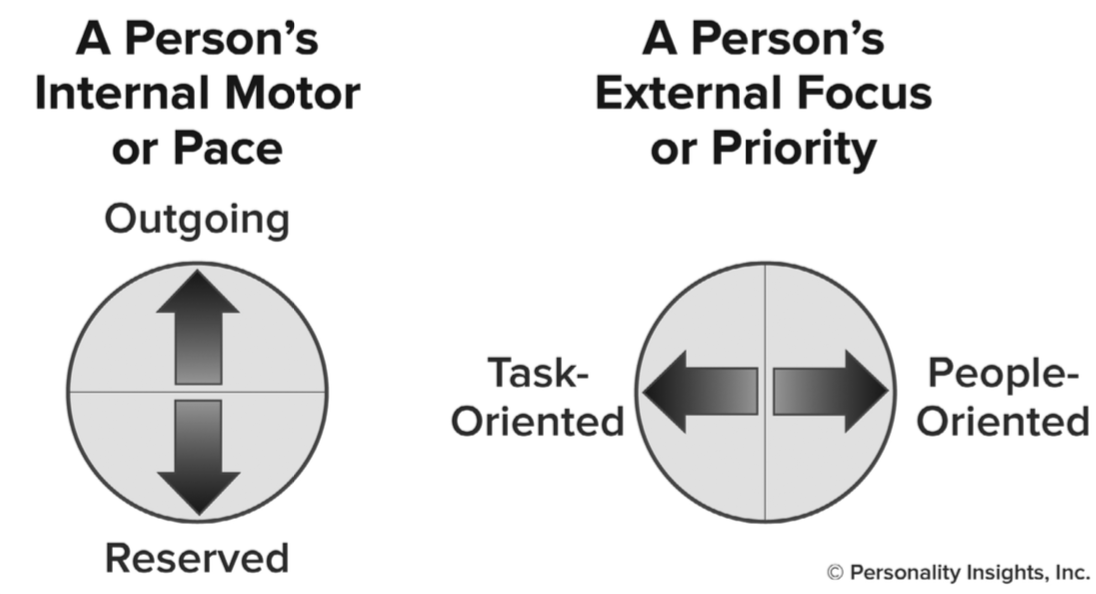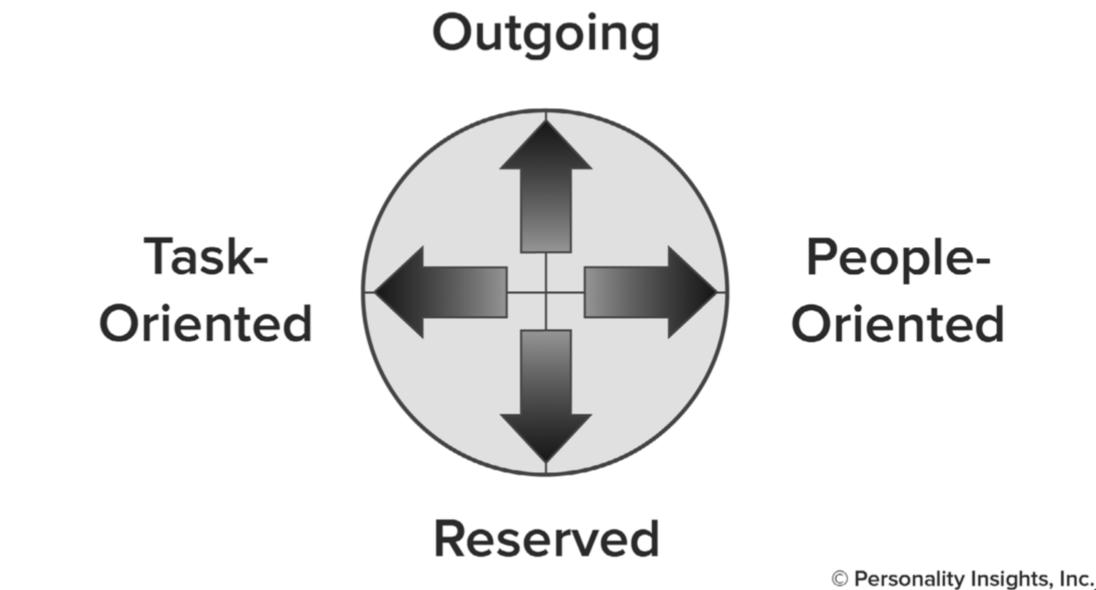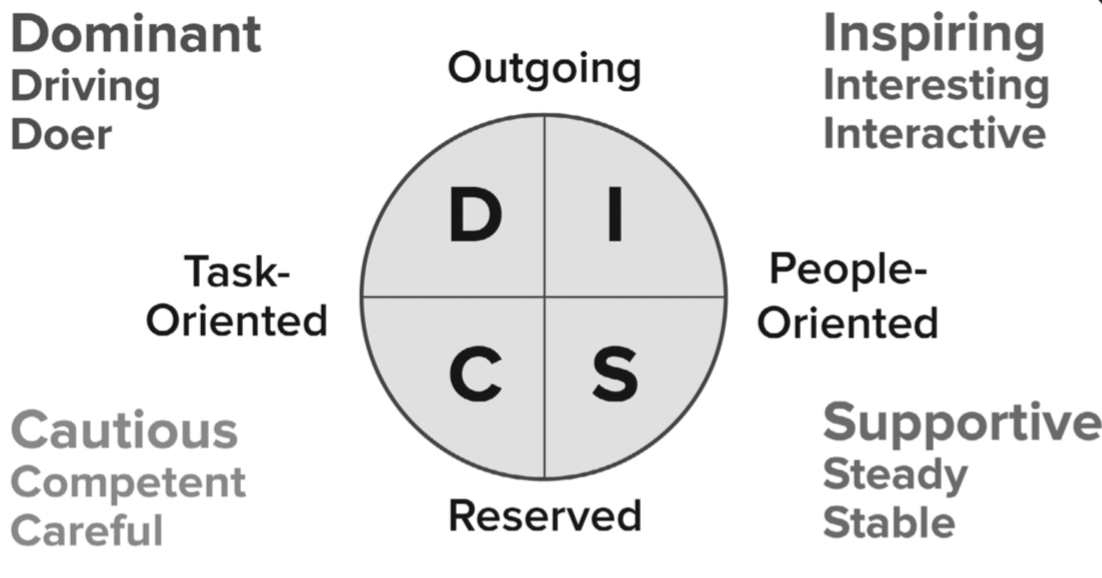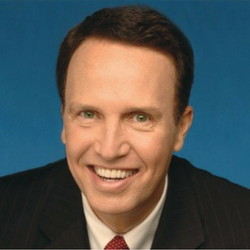READ THE REPORT BELOW
A Powerful Way To Understand People
by Robert A. Rohm, Ph.D.
WANT TO KNOW YOUR UNIQUE PERSONALITY?
There Is a Simple and Powerful Way to Understand People!
The good news is that there is a simple key to understand how people behave and how they are motivated. We call the concept the DISC Model of Human Behavior. This concept will allow you to unlock the mystery behind developing good people skills and creating better relationships. You will be able to use what you learn in this introduction to reduce conflict, improve productivity, and relate with others more effectively.
Each Person Has Unique Personality Traits
Each person’s perspective is built into who they are. Some people call it “personality,” and some refer to it as “temperament.”
Ever notice how different your family and friends can be from you? If you are like me, you have asked yourself, “Why did they do that?” or “What were they thinking?” The starting point of understanding people is to realize and accept one simple fact: everyone is not like you!
Have you ever said the same thing to two people and received two totally different reactions? How can saying the same words produce such different results? Each person “heard” you differently based on his or her personality style! You said the same thing, but what they “heard” was different.
Different is not bad, it is just different! A lack of understanding of ourselves and others can lead to real problems such as tension, disappointment, hurt feelings, unmet expectations, and poor communication. As you know, it is hard to work with a problem, especially if you do not understand what is going on inside the mind of another person.
The DISC Model of Human Behavior
The DISC Model of Human Behavior is based on two foundational observations about how people normally behave:
Observation #1: Some people are more outgoing, while others are more reserved. You can think of this trait as each person’s “internal motor” or “pace.” Some people always seem ready to “go” and “dive in” quickly. They engage their motor quickly. Others tend to engage their motor more slowly or more cautiously.
Observation # 2: Some people are more task-oriented, while others are more people-oriented. You can think of this as each person’s “external focus” or “priority” that guides them. Some people are focused on getting things done (tasks); others are more tuned in to the people around them and their feelings.
With both observations, we want to emphasize that these behavioral tendencies are neither right or wrong or good or bad. They are just different. We are simply identifying normal behavior styles. People have different styles, and that is okay. We represent these two observations:

Four Major Personality Traits
In review, we have four behavioral tendencies to help us characterize people:
Everyone has some of all four of these tendencies at different times and in different situations. However, most people typically have one or two of these tendencies that seem to fit them well in their everyday behavior. And, on the other hand, one or two of these tendencies usually do not fit them well, and these tendencies may even seem “foreign” to their approach to life. The balance of these four tendencies shapes the way each person “sees” life and those around them. By combining the two previous diagrams, we can show four basic quadrants of the circle as shown below. Thus, four basic personality traits emerge from our diagram corresponding to the four quadrants of the circle (in clockwise order):

Next, we will add descriptive terms for each of the four main personality types that emerge in the diagram. The descriptive terms will begin with D, I, S, and C.
Describing Each Personality Style
There are four different personality types with four different priorities. Notice the letters D, I, S and C appear in the four quadrants of the circle in the figure below. You will also notice that descriptive terms have been added in each of the four corners of the diagram. Now we can further describe each of the four main personality styles:

D-I-S-C Descriptive Terms
1. The Dominant “D” type. An outgoing, task-oriented individual will be focused on getting things done, accomplishing tasks, getting to the bottom line as quickly as possible and “making it happen”! The key insight in developing a relationship with this type of person is respect and results.
2. The inspiring “I” type. An outgoing, people-oriented individual *to interact, socialize, and have fun. This person is focused on what others may think of him or her. The key insight in developing a relationship with this type person is admiration and recognition.
3. The Supportive “S” type. A reserved, people-oriented individual will enjoy relationships, helping or supporting other people, and working together as a team. The key insight in developing a relationship with this person is friendliness and sincere appreciation.
4. The cautious “C” type. A reserved, task-oriented individual will seek value, consistency, and quality information. This person focuses on being correct and accurate. The key insight in developing a relationship with this individual is trust and integrity.
Summarizing the DISC Traits
About Dr. Robert Rohm

Robert A. Rohm, Ph.D. is a popular keynote speaker, author and corporate trainer recognized for his expertise in team building and human behavior. He uses a highly engaging combination of humor and illustrations to educate, motivate and train his audience.
As the host of PBS Special, The Model of Human Behavior, Rohm’s material is proven to increase productivity and reduce conflict.
His message applies well for business and personal use. As a best selling author, he has written or co-written over twenty books.
Over two million have experienced Dr. Rohm in live presentations, and over one thousand people have been through his DISC certification training program at his corporate headquarters in Atlanta, Georgia. The comprehensive 3-day program allows individuals to become Certified Human Behavior Consultants.
His seminars are beneficial for corporations, small businesses, schools, churches and government agencies. His time-tested strategies work to improve results, lower stress, minimize employee turnover and dramatically improve communication.
Rohm is the owner of Personality Insights, Inc. and the Co-Founder of DiscoveryReport.com – the leading provider of cutting-edge online DISC personality profile assessments.
©Phenomenal Business Coaching. All Rights Reserved.